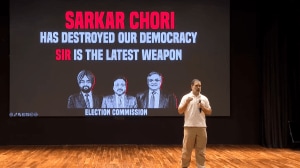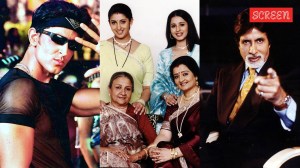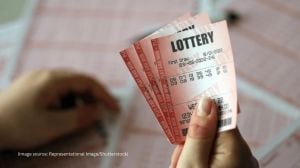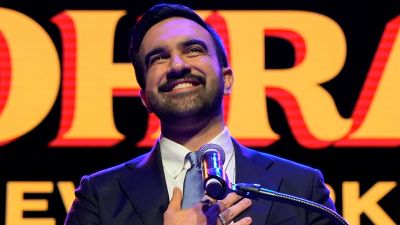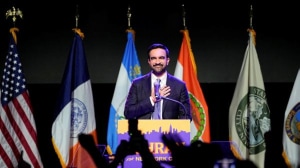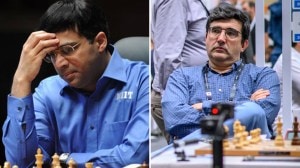Shadow of an abuse scandal looms over a World Cup soccer team
Vera Pauw, 60, Ireland’s national coach and a former coach of the Houston Dash of the National Women’s Soccer League, was accused late last year of body-shaming players and of being a “power freak” who sought to control their lives when she coached the Dash in 2018.
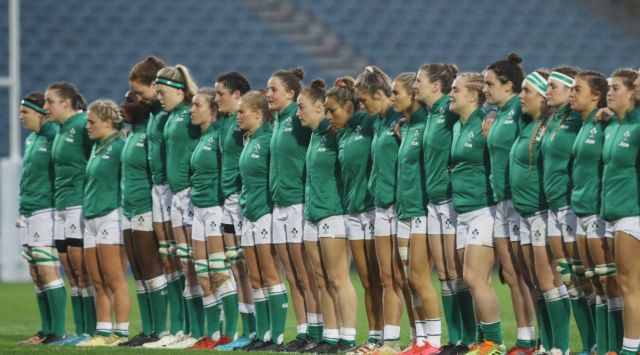 As Ireland prepares for its first Women’s World Cup, its coach and a newly included midfielder find themselves on opposite sides of an abuse scandal that has roiled soccer in the United States. (Image/ Reuters)
As Ireland prepares for its first Women’s World Cup, its coach and a newly included midfielder find themselves on opposite sides of an abuse scandal that has roiled soccer in the United States. (Image/ Reuters) By Jeré Longman
As Ireland prepares for its first Women’s World Cup, its coach and a newly included midfielder find themselves on opposite sides of an abuse scandal that has roiled soccer in the United States. But their separate conflicts have fused into a tentative and pragmatic alliance.
Vera Pauw, 60, Ireland’s national coach and a former coach of the Houston Dash of the National Women’s Soccer League, was accused late last year of body-shaming players and of being a “power freak” who sought to control their lives when she coached the Dash in 2018. At a news conference in Austin on Friday, Pauw labeled the accusations, contained in a blistering report organized by the league and its players’ union, “absolutely ridiculous and false.”
Sinead Farrelly, 33, a native of suburban Philadelphia who has dual citizenship with Ireland, was a brave and vital whistleblower who helped lift the league’s veil of indifference toward coaching misconduct. Farrelly and other players made accusations of sexual, verbal and emotional abuse that led to four NWSL coaches’ being barred permanently from the league early this year.
Pauw was not accused of sexual impropriety, did not coach Farrelly in the league and was not among those barred for life. To return to the NWSL, however, she has been told that she must accept responsibility for her actions. That restriction does not apply to international soccer.
For the next few months at least, Pauw, who is Dutch, and Farrelly, who ended her seven-year absence from soccer last month in returning to the NWSL and made her debut for Ireland on Saturday, are expected to collaborate as Ireland approaches the World Cup this summer in Australia and New Zealand.
In that debut in Austin, a 2-0 defeat to the four-time world champion United States, Farrelly sought to bring a calming presence while starting in Ireland’s midfield after only two training sessions. She did not play in a second tuneup match with the Americans, a 1-0 loss Tuesday in St. Louis, as Pauw said she withheld her from the starting lineup for “injury prevention” because she had not played much with her club yet this year.
 Vera Pauw, 60, Ireland’s national coach and a former coach of the Houston Dash of the National Women’s Soccer League, was accused late last year of body-shaming players and of being a “power freak” who sought to control their lives when she coached the Dash in 2018
Vera Pauw, 60, Ireland’s national coach and a former coach of the Houston Dash of the National Women’s Soccer League, was accused late last year of body-shaming players and of being a “power freak” who sought to control their lives when she coached the Dash in 2018
Pauw said that she had spoken to Farrelly before she joined the Irish team and had tried to make her feel comfortable. They share a desire to perform on soccer’s grandest stage but also a horrible commonality. Last year, Pauw said that she had been raped by a Dutch soccer official when she was a player and that she had also been sexually assaulted by two other men.
For 35 years, she kept the abuse private, Pauw said in a statement in July, allowing the memories “to control my life, to fill me with daily pain and anguish.”
In a broad sense, the Pauw-Farrelly union can be viewed as a dispiriting sign of how widespread accusations of impropriety are in women’s soccer.
On a personal level, Pauw is trying to restore her reputation, which she believes was unfairly tarnished. And Farrelly is attempting to restart a career, once blooming with promise but prematurely shriveled by what she has described as sexual coercion, emotional manipulation and the shattering of her self-confidence by a former coach, Paul Riley.
In September 2021, Farrelly told The Athletic that Riley, one of the top coaches in women’s soccer, had coerced her into a yearslong sexual relationship and once manipulated her into kissing a teammate with the Portland Thorns in front of him in exchange for a less strenuous team practice. The teammate, Mana Shim, confirmed Farrelly’s account and made other similar allegations of misconduct against Riley. He has denied having sex with any players.
The revelations pulled back the curtain on systemic abuse in women’s soccer and led to wide-ranging fallout across the NWSL. An investigation headed by Sally Q. Yates, a former deputy U.S. attorney general, described Riley’s misbehavior over the years as an “open secret.”
Farrelly said Saturday that her comeback would not have been possible without the catharsis of telling her story publicly.
“That healing and liberation from that had to occur before I could ever play again,” she said.
Pauw vigorously defended herself at Friday’s news conference.
“If there’s one thing that I don’t do, it is body shaming,” she said. “There is no scale in my dressing room, there’s no fat percentages taken.”
“What is the standard?” Pauw said plaintively. “Can you not educate players in getting the best out of themselves with something that is technically just coaching?”
No one would have complained if she were a male coach, Pauw said.
“As a female coach, you’re not safe in your coaching,” she said. “You’re not safe to do your job. There’s double standards here.”
The World Cup begins in three months. Farrelly and Pauw are looking ahead, seeking repair and renewal.
Pauw said that Farrelly “trusts me; she trusts the truth.”
Farrelly appears more wary. She said she was cautious about playing for a coach accused of abuse, even if it was not sexual wrongdoing.
“I think it’s just going to be time for us to build trust and stuff like that,” Farrelly said. She took a risk, a leap of faith, she said, hoping the Irish national team would be a healthy environment for her. “It’s an ongoing thing, I think.”
This article originally appeared in The New York Times.


- 01
- 02
- 03
- 04
- 05


